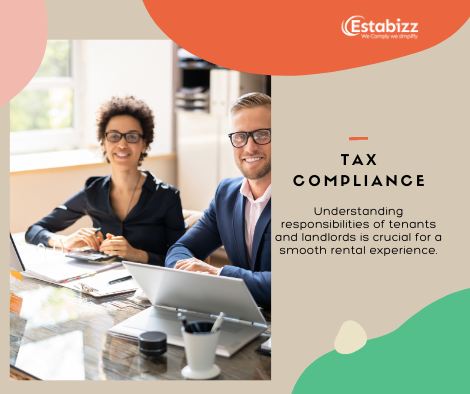Understanding Tax Compliance for Tenants with Non-Resident Indian Landlords
Navigating the intricacies of tax compliance can be daunting, especially when renting from a non-resident Indian (NRI) landlord. Ensuring adherence to the regulations not only safeguards your interests but also fosters a transparent financial environment. Below, we outline critical steps to achieving compliance, enhanced by insights into current trends and practical strategies.
Key Tax Regulations for Tenants

Tax Deduction at Source (TDS)
- NRI Landlords:
- Deduct 31.2% of rent as TDS every month.
- Possible reduction in TDS through a certificate from tax authorities based on your application and documentation.
- Resident Landlords:
- TDS applies only if monthly rent exceeds ₹50,000, set at 2% annually.
- Deduct TDS in the last month of the financial year or tenancy.
Identifying Landlord Residency Status
- Verification Steps:
- Annually obtain written confirmation of your landlord’s residency status.
- Ensure understanding and accuracy to prevent compliance issues, as ignorance is not an accepted excuse by tax authorities.
Compliance Procedures for Tenants

Obtaining a Tax Deduction Account Number (TAN)
- Necessity: Required for remitting TDS to the Indian government.
- Timeline: Deposit TDS by the seventh day of the following month; for March, the deadline is April 30.
Filing e-TDS Returns
- Quarterly Requirement: Provide detailed returns, including landlord details, rent, and TDS particulars, by the end of each month following a financial quarter. For the last quarter, the deadline is May 31.
- Resident Landlords: File Form 27QC once annually if required.
Consequences of Non-Compliance
- TDS Deduction Failures:
- 1% monthly interest on TDS until full payment.
- Missing payment deadlines incurs a 1.5% interest rate per month.
- Filing Delays:
- ₹200 penalty per day until compliance, capped by the TDS amount.
- Potential penalties equal to unpaid TDS, with failures leading to severe consequences, including prosecution.
Recent Trends and Considerations
With increasing globalization and digitalization affecting real estate and rental transactions, tenants must stay informed about evolving tax policies and leverage technology to manage compliance efficiently. Automation in TDS calculations and filing can significantly reduce errors and ensure punctuality.
Additional Considerations for Compliance
Documentation and Record-Keeping
Successful tax compliance extends beyond timely payments and filings. Maintaining accurate and comprehensive records is crucial:
- TDS Certificates: Issue Form 16A to the landlord, certifying the amount of TDS deducted and deposited.
- Receipts and Challans: Keep all receipts and challan details for TDS payments as part of your financial records.
- Communication Records: Retain any correspondence with your landlord regarding residency status and TDS agreements.
Leveraging Professional Services
Given the complexity of tax compliance, particularly with cross-border issues, leveraging professional services can be invaluable:
- Consult with Tax Experts: Seek advice from professionals who understand both local and international tax laws.
- Use Compliance Software: Deploy advanced software solutions for tracking, calculating, and filing TDS.
The Global Advantage with Estabizz Fintech Private Limited
In an interconnected world, understanding and managing financial compliance across borders is paramount. Estabizz Fintech Private Limited stands ready to assist, offering extensive expertise in global financial regulations and personalized strategies to help you navigate these challenges.
Comprehensive Global Services
- Local Expertise in Numerous Countries: Benefit from our global network of professionals who provide localized insights and solutions.
- Tailored Compliance Solutions: Receive strategies tailored to your specific needs, ensuring seamless compliance regardless of location.
Empowering Business Growth
With Estabizz, you’re not merely meeting compliance requirements; you’re setting a foundation for robust business growth:
- Risk Mitigation: Proactively manage risks associated with non-compliance, safeguarding your business from financial and legal repercussions.
- Operational Efficiency: Streamline your compliance processes, allowing you to focus on your core business activities.
- Strategic Expansion: Confidently expand into new markets with our support, ensuring adherence to local regulations and fostering sustainable growth.
Conclusion
Navigating tax compliance when dealing with NRI landlords demands a thorough understanding of specific regulations and diligent execution of necessary steps. From obtaining and managing TAN to timely filing e-TDS returns and maintaining essential documentation, compliance ensures financial integrity and legal security.
Estabizz Fintech compiled the material in this article using the most recent Acts, Rules, Circulars, Notifications, Provisions, Press Releases, and material applicable at the time. They ensured the completeness and correctness of the material through due diligence. When using this material, users must consult the relevant, applicable legislation. The given data may change without prior notice and does not constitute professional advice. Estabizz Fintech disclaims all liability for any results from the use of this material.






